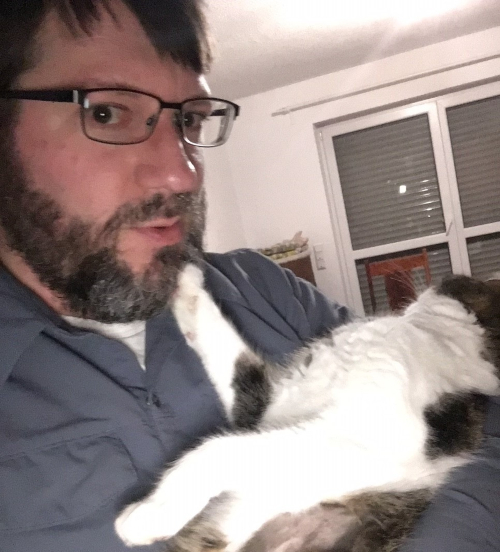Warrior Grateful to Find Winning Future Through WWP Talk

Army veteran Steven Swiger developed a mantra he likes to live by that concludes every email he sends: “If you wake on the breathing side of the bed, you have already won.”
After a challenging transition to civilian life, he connected with Wounded Warrior Project® (WWP) and WWP Talk. WWP Talk is the organization’s mental health phone support line. The veterans’ mental health program provides a safe, non-judgmental outlet to warriors and their family members managing PTSD, anxiety, traumatic brain injury (TBI), and other invisible wounds of war.
Steven sustained a severe concussion and fractured part of his spine because of a fall onto concrete during a training exercise, but he didn’t reach out for help initially because he wanted to keep working.
He coped with severe headaches, memory loss, and losing consciousness. When the pain became too much, he began a long journey of searching for effective medical treatment and relief. He received morphine during one hospital visit — an extreme measure for someone who had never even taken an aspirin. The morphine caused his heart to stop three times.
When he came back to life, he said everything changed. The experience made him appreciate the life he still had. And this is when he began to quip about waking up on the breathing side of the bed. He used the phrase to motivate himself to keep fighting to make it back to some semblance of a normal life.
“The mantra has become the sentence that guides my life,” Steven said.
Steven finally found the care he needed and was medically retired. Although he found helpful solutions for his injuries, he still had a hard time accepting his new future outside of the military.
“All I ever wanted was to serve my country,” Steven said.
He struggled with these feelings for years before reaching out to WWP, which recognized some of the issues he was facing and suggested the mental health phone support line. WWP Talk participants receive weekly calls from the same WWP teammate at the same pre-established day and time, with calls lasting about 20 minutes. The program duration is based on the needs of each person.
“I don’t know if I would have made it without Julie,” Steven said. Julie was Steven’s WWP Talk specialist. “The call at the same time every week — at first it was kind of hard, but then I began to look forward to it. It was one of the few things in my life I could count on.”
“The program taught me a lot of different coping mechanisms,” Steven added. “One that I use frequently is constantly looking for one good thing. Where can I find one good thing?”
Steven’s new perspective is apparent in the quote he developed. And he brings this winning attitude to his daily life.
“As the seasons change and it becomes painful to walk and move, I wake on the breathing side of the bed and say, ‘There are brothers and sisters in arms who would give anything to have it as good as I do.’ So, I take those steps and live as strong as I can.
“My latest diagnosis marked my short-term memory in the fifth percentile. But I continue to wake up on the breathing side of the bed and say, ‘How will others know that TBI is not the end of life, unless I get out here and live mine?’ Lead by example.”
Steven has some advice for other warriors who might be struggling.
“As depression, anxiety, PTSD, and a litany of old wounds in your soul drag you down, wake on the breathing side of the bed and say, ‘I am lucky. Some of my brothers and sisters in arms gave all. I was lucky enough to only give some. To honor their sacrifice, I will stand up, I will get dressed, I will go to work, I will listen to others, I will hug my kids, I will take out that trash, and I will clean that litter box. For all of these things, I am eternally grateful.’”
About Wounded Warrior Project
Since 2003, Wounded Warrior Project® (WWP) has been meeting the growing needs of warriors, their families, and caregivers — helping them achieve their highest ambition. Learn more.